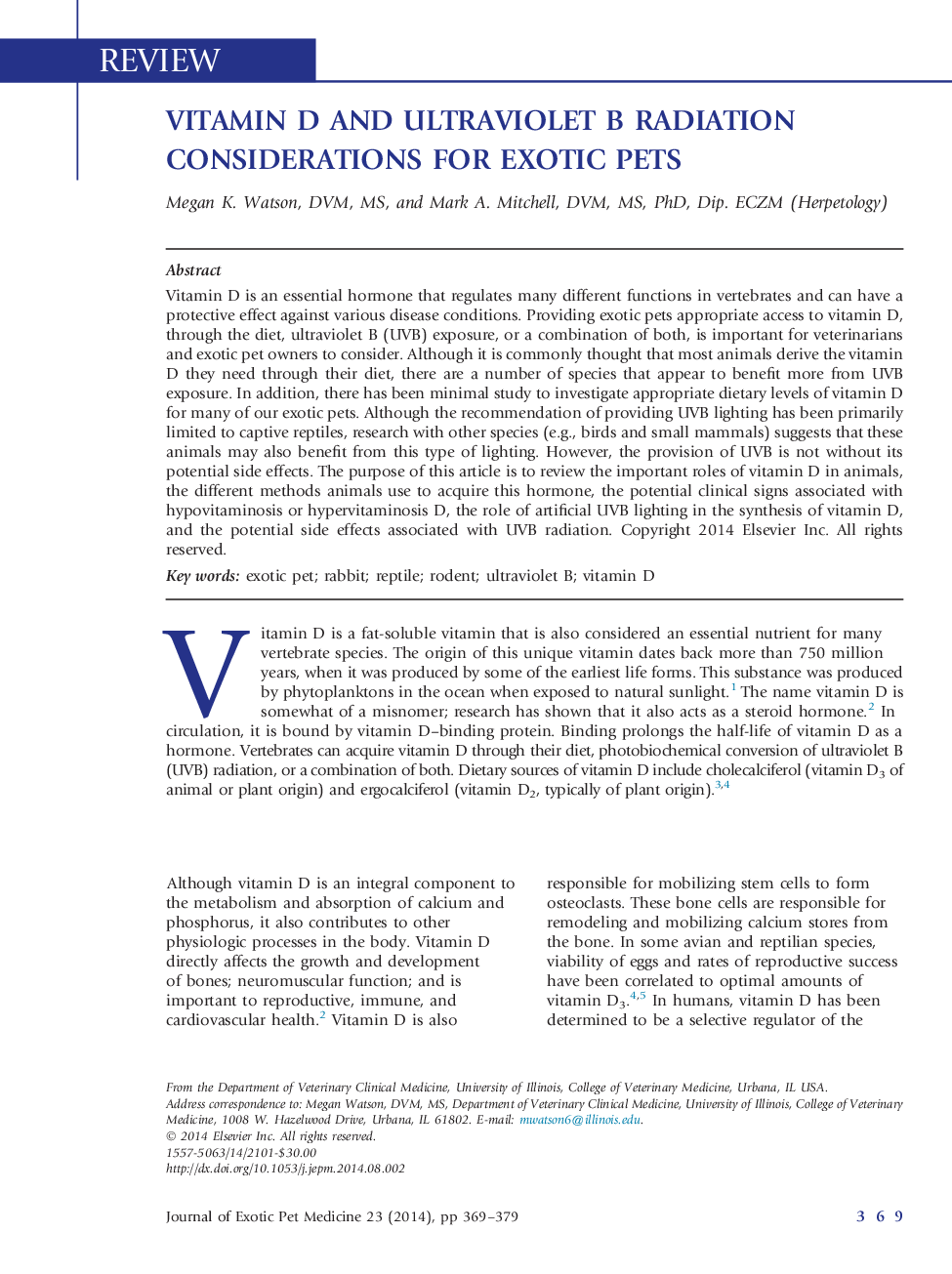| Article ID | Journal | Published Year | Pages | File Type |
|---|---|---|---|---|
| 2396821 | Journal of Exotic Pet Medicine | 2014 | 11 Pages |
Vitamin D is an essential hormone that regulates many different functions in vertebrates and can have a protective effect against various disease conditions. Providing exotic pets appropriate access to vitamin D, through the diet, ultraviolet B (UVB) exposure, or a combination of both, is important for veterinarians and exotic pet owners to consider. Although it is commonly thought that most animals derive the vitamin D they need through their diet, there are a number of species that appear to benefit more from UVB exposure. In addition, there has been minimal study to investigate appropriate dietary levels of vitamin D for many of our exotic pets. Although the recommendation of providing UVB lighting has been primarily limited to captive reptiles, research with other species (e.g., birds and small mammals) suggests that these animals may also benefit from this type of lighting. However, the provision of UVB is not without its potential side effects. The purpose of this article is to review the important roles of vitamin D in animals, the different methods animals use to acquire this hormone, the potential clinical signs associated with hypovitaminosis or hypervitaminosis D, the role of artificial UVB lighting in the synthesis of vitamin D, and the potential side effects associated with UVB radiation.
